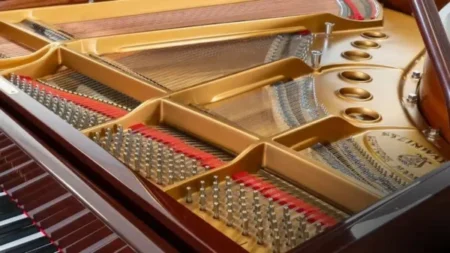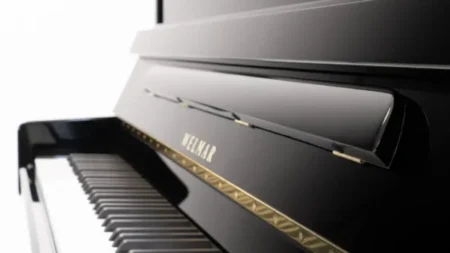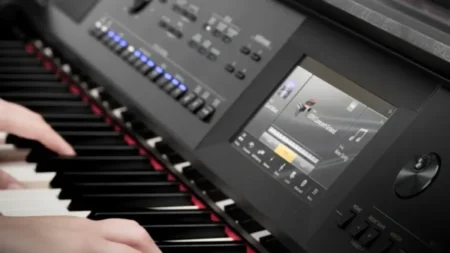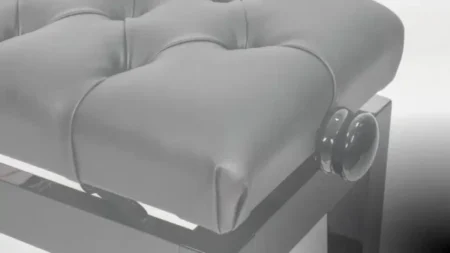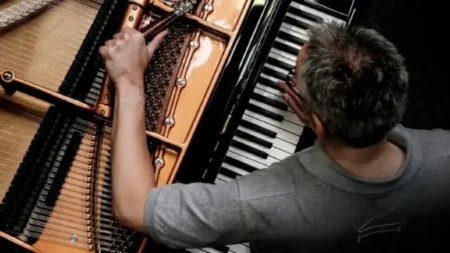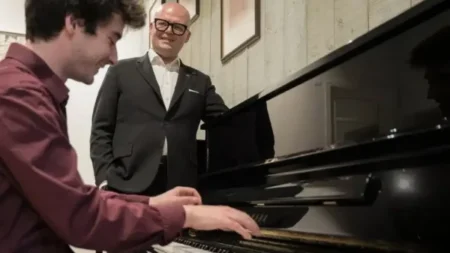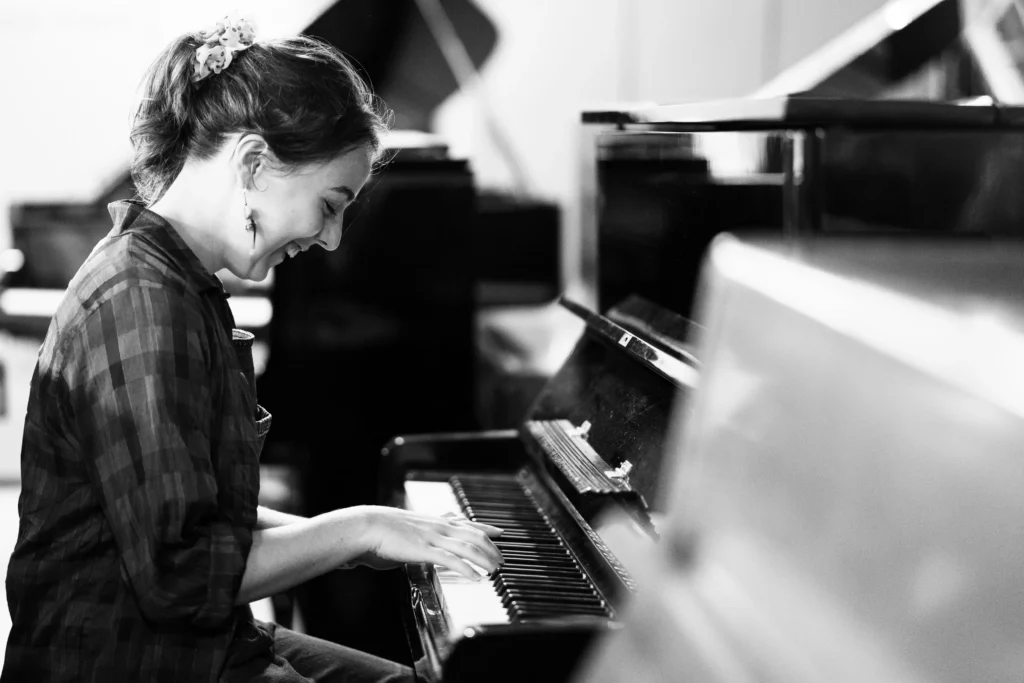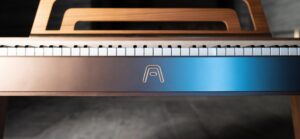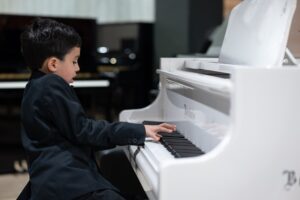‘How long does it take to learn piano?’ This is a common question often asked when it comes to learning the piano. How long will it take for you to confidently be able to say “yes, I can play the piano?”
The real answer to this question, unfortunately, is ‘it depends’. How long is a piece of string? As with any skill, there is no definitive end to your piano learning journey; you will be learning for as long as you are playing.
Even concert pianists at the highest possible level are still learning. However, the process is often quicker for children than it is for adults, for the same reason that children pick up a foreign language easier than an adult beginner; their brains are more malleable.
Adults can still reach a level of decent proficiency at their craft, but it may take longer.
What is Your Piano Learning Goal?
There are other factors to take into consideration: your exact goal, your natural ability, the amount of practice time you can commit to and, of course, your instructor.
Most adults don’t aim to become concert pianists and just want to play piano for pleasure. Becoming a concert pianist could take 20 years or more, with regular daily practice over the course of 8 to 12 years to become truly proficient.
However, ‘playing for pleasure’ is a vague goal and various factors come into play. What exactly do you want to play and how well do you want to be able to play these pieces for pleasure?
Becoming a concert pianist has to be reserved for the most proficient pianists. That’s not to say that amateur pianists cannot play Bach and or a Beethoven sonata, but they will require several hours of daily piano practice, and approaching these pieces is not for everyone.
Most adults would attempt easy arrangements of their favourite pieces. Several books are now available on the market that allow you to enjoy playing your favourites. Playing the original versions, however, should not be approached at the early stage of your piano education. You should, at least, wait a few years before attempting to study classical arrangements.
Is it Hard to Learn Piano?
The question, ‘Is it hard to play the piano?’ really depends on how much time you are willing to put into practice. The more you practice, the quicker you will improve. A good general rule of thumb is to have focused practice 30 minutes a day to see improvement from week to week.
Having prior musical experience will be an advantage but it is still possible to master the fundamentals of reading music from the very beginning of learning the piano. It is important to keep your expectations realistic at beginner level; learn the basics first and build a strong foundation.
Logic dictates that you should focus on basic melodies before moving to more complicated works. If you try a piece that’s well above your skill level, you’ll likely get frustrated and be more tempted to quit.
Do Online Apps Work?
Online learning allows you the flexibility to learn at the most convenient time for yourself. At the very least, you don’t have to spend time driving to your teacher’s home or studio, and you can go through piano lessons at your own pace.
Online apps will help you learn new pieces without a teacher or having to buy sheet music. Apps are aimed at players who are not comfortable reading sheet music by themselves and provide a video of a pianist playing whatever piece you’ve chosen, along with the sheet music.
The apps use either your piano’s microphone or MIDI interface on your device to listen for the notes you’re playing and won’t continue until you play the right notes.
When the video of the pianist plays, the notes they are playing are illuminated to help you find exactly the note you need while you are still in the process of learning to read sheet music.
These apps will often have a huge range of music included. However, they don’t teach you how to read music or learn music theory, and they won’t teach you piano technique.
Online apps are often great for a complete beginner, but as you improve and want to play more difficult pieces, solid technique becomes very important. The courses won’t teach you advanced music theory, so if you’re looking to play very advanced classical music, a teacher may suit you better.
Learn more about different piano learning apps HERE.
Are Digital Pianos Good to Learn On?
An important thing to consider when looking at digital pianos as an option to learn on is that without 88 weighted keys, you risk a very difficult transition to the acoustic piano.
As piano students, you may find large acoustic pianos intimidating and see a digital piano as being easier and lower maintenance, however if you are seeking to learn properly, and quickly, we would always recommend an acoustic piano, and these needn’t be overly expensive for your first instrument.
A decent second-hand acoustic upright piano is not too much more expensive than a smart digital piano.
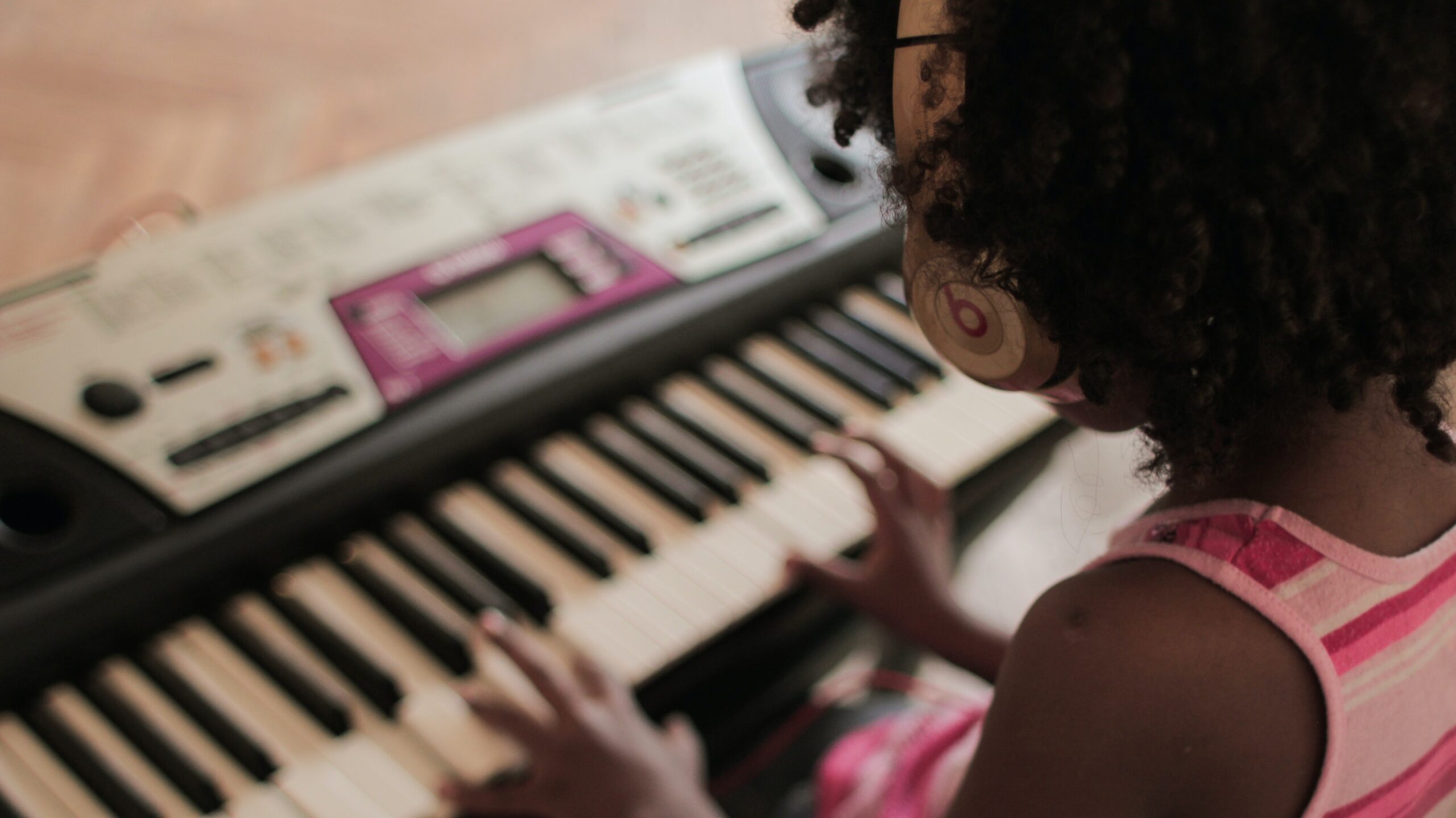
Can You Learn Piano in 30 Days?
The traditional method of learning to play music on the piano with a teacher instructing you on the fundamentals, before increasing to more complex lessons, will take time.
The benefit of learning this way is gaining an in depth understanding of music theory, the keyboard and the relationship between the notes.
Some online courses boast that it doesn’t take years to learn to play the piano proficiently, however, as a time frame, 30 days is an extraordinary request and even the very best teachers would struggle to teach piano playing in just a few weeks.
How Long to Learn Piano Technique?
How long does it take to get a good technique on piano?
If you practised for 10 minutes a day for five to six days per week, it could take about 12 weeks to develop a solid technique, such as being able to play all 12 Major Scales at 90 bpm, sixteenth notes, giving you the finger strength, dexterity and coordination to play most songs.
However, this doesn’t mean you can skip five days and practise for an hour all on the last day; it is best to develop over time and build up strength.
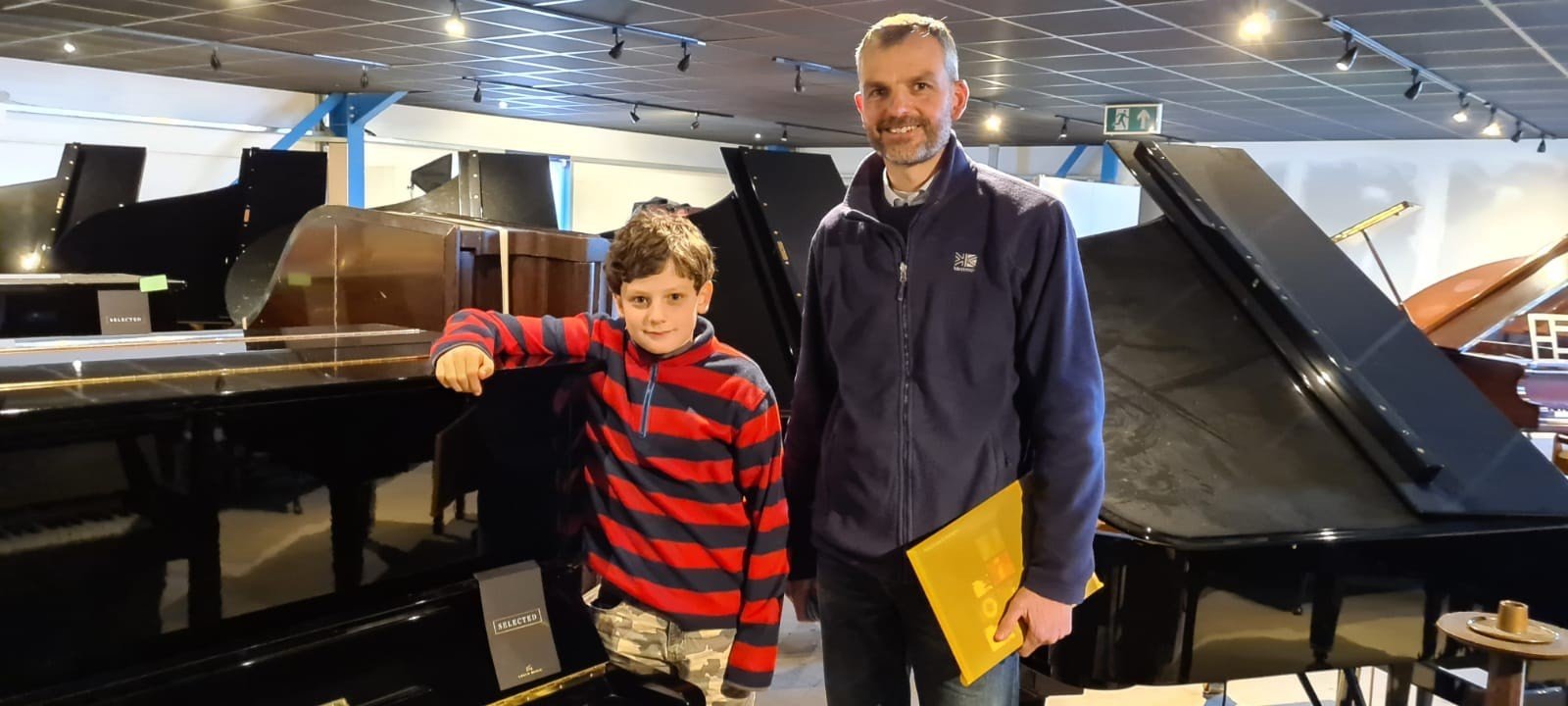
How Long to Learn How to Play Piano by Ear?
If you can already play songs with both hands it could take you about four months to get good at playing piano by ear.
If you’re a complete beginner and you’ve never played a piece with both hands before, it’ll take you about six months because you’ll need to learn some other skills first.
Just like with technique, you will need to practise 10 minutes a day, five to six days per week.
How Long to Learn Songs on Piano?
How long it takes to become good at learning songs on piano is a tricky one to answer because it depends on how difficult the songs are and how you would define ‘good’.
If you want to get results in about six months, you’d need to practise for about 20 minutes a day, five to six days per week. Your practice will need to be specific; breaking your first song into sections and focusing on the sections that need work. Spending half your practice sessions playing the easy parts you already know won’t get the desired results in six months.
Amazing results can be achieved with focused and consistent practice, however, the biggest mistake people make is they don’t follow the details.
An effective practice plan would be to use a stopwatch to time sessions to make sure your 10 minute practice sessions don’t shrink to six or seven minutes. Consistency is key.
Everybody’s different but not significantly different. Even if someone is a bit slower to pick up different aspects of learning piano, if they’re practicing consistently, focusing on the parts they don’t already know, then they will can still potentially learn at a similar speed.
Use a Step-By-Step Training Plan
If you took six months to learn piano by spending 10 minutes a day on scales, 10 minutes a day on play-by-ear drills, and only twenty minutes a day on songs, you could:
- Have hyper focused technique
- Be able to play by ear
- Be able to play songs which are considered ‘good’
A total of 40 minutes a day for six months is possible.
If you don’t have 40 minutes available to you in a day and you only have 20 minutes, maybe you could spend three months focusing on technique and playing by ear. Then, for another three months you may focus on playing songs and go through both again and in about a year you could be good at all three.
Should How Long I Practise Depend on My Age?
The amount of time that a beginner should practise will depend primarily on your age.
Younger children won’t be able to concentrate to practise effectively for longer periods of time. 15-20 minutes a day is generally enough for children around the age of four or five. This may not seem like a significant amount of time to make improvements in skill level, it is important because it will help children to develop the habit of practising on a daily basis.
For teenagers and adults learning to play, practise should take about 30 minutes a day, six days a week. As skills improve, it will be incredibly beneficial to increase the practise time to around 45 minutes to an hour. This is because it will be necessary to take the time to maintain the skill level, as well as build upon it.
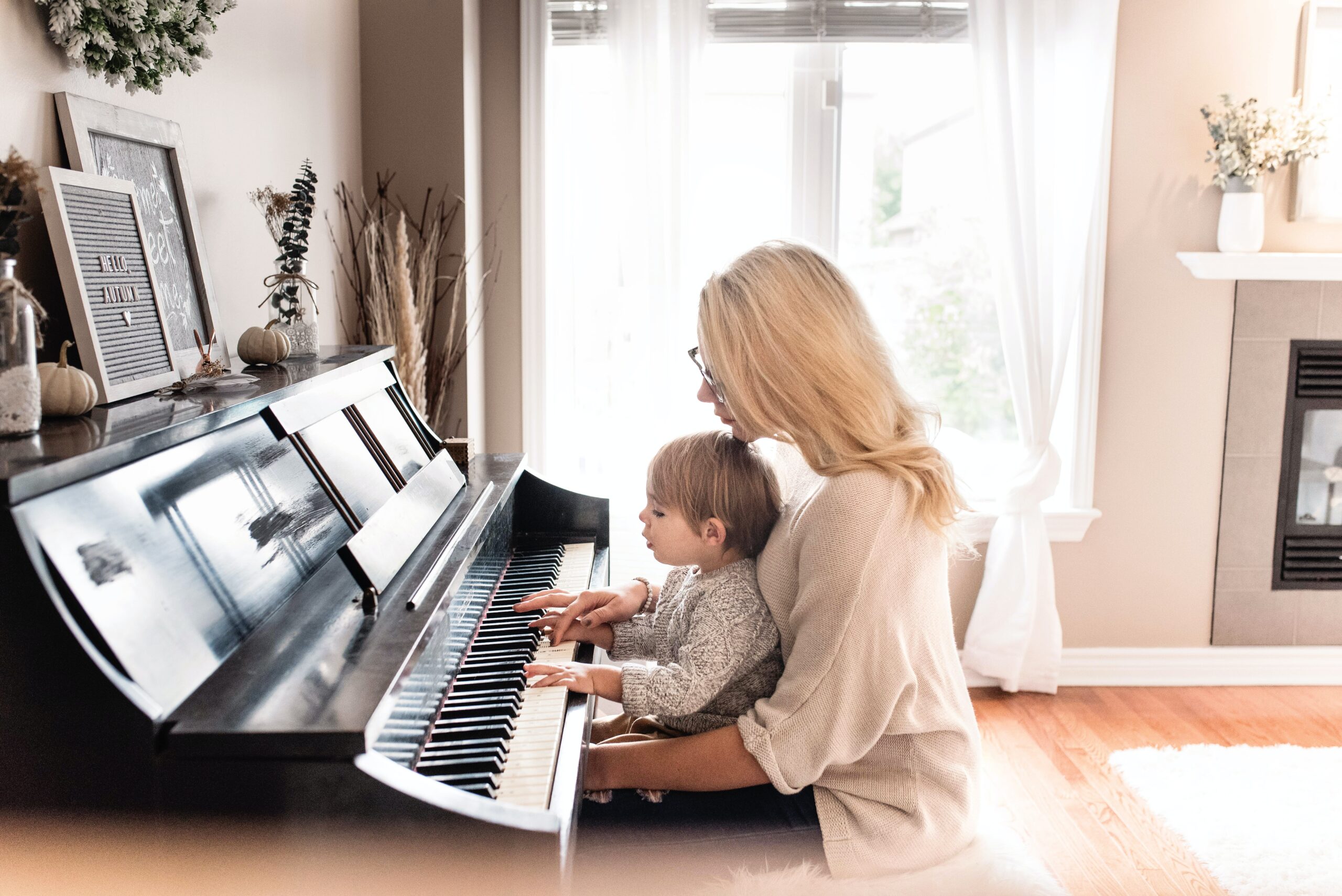
How Long Do Professional Pianists Practise?
Professional pianists have to spend far more time practising the piano than the general player. Not only do they have to maintain an incredibly advanced skill level, but they will also try to improve upon these skills.
Most professional pianists practise everyday around three to four hours, though they may have had to practise as much as eight hours a day to get to a professional pianist skill level. It takes a serious amount of time and dedication to play the piano at a professional level.
Is it important to have a piano teacher?
No matter what stage of learning you’re at with learning to play the piano, having a teacher is extremely beneficial. Piano teachers have a significant impact on your piano-playing journey.
They can help you with interpretation of the music, drawing up helpful lesson plans, helping you piano study at home, proper technique and much more. They are a helpful guide on your lifetime journey to your musical goals.
The biggest impact piano teachers make is on your learning speed. A good piano teacher will teach you effective ways to practise, so that you aren’t spending an enormous amount of hours at the instrument. Some of the other benefits of a piano teacher are:
- Accountability
- Individual approach
- Answer specific questions
- Troubleshoot
- Help keep you committed
Having a piano teacher is definitely an investment of your time and money and not something to take lightly. You’ll need to schedule them into your weekly diary and that can be a big commitment. However, learning the piano with a real teacher has many benefits because they have the potential to take you to new heights that are very difficult to reach on your own or with online programs.
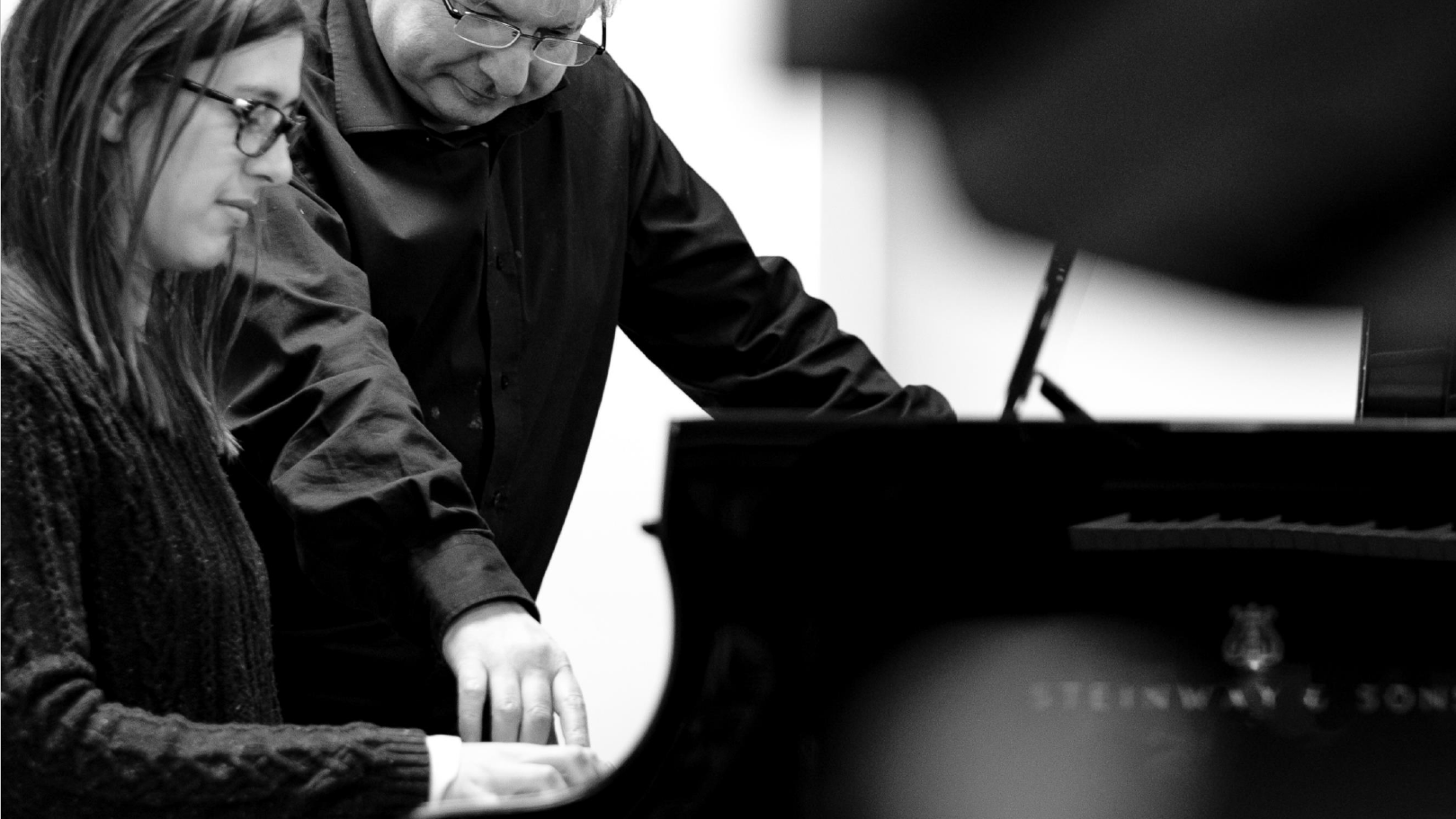
What Makes it Difficult to Learn the Piano?
There are several issues that can cause a barrier to you successfully learning the piano.
-
Learning Without Help From a Teacher
A good teacher helps you learn by helping you establish the best habits, including posture and hand position. They can make stylistic corrections and point out the same mistakes you may not notice and supply the appropriate teaching materials to help with music theory. Learning on your own will definitely be slower.
-
Not enough practise
If you only practise once or twice between your weekly lessons, you probably won’t progress at the pace you wish and then it’s a waste of money to hire an experienced teacher if you refuse to put in the time in between lessons.
-
Lack of Musical Background
It’s not impossible to learn the piano if you have no prior musical experience; it will just take you a little longer at the start to master the fundamentals of reading music. After all, we all need to start somewhere! So, be patient with yourself, stay focused and remain positive!
-
Attempting to learn on a cheap keyboard
Without an 88-key piano, you’re limiting yourself and making it more difficult to learn the instrument.
The best option to give you the most authentic playing experience possible is either an upright piano or a digital piano. However, if you go to your piano teacher’s home or studio, it’s likely that they offer instruction on an upright piano as opposed to a digital keyboard.
Having an instrument at home consistent with the one you use in your lessons will certainly help.
-
Having either too high or too low expectations
It’s important to keep your expectations in check: don’t start piano lessons thinking you’ll be playing in a classical concert within a year!
Get the basics mastered first and build a strong foundation by learning one-handed songs and basic melodies before you move to more complicated works. If you attempt playing pieces above your skill level, you’ll likely get frustrated and quit.
Even a simple song can sound amazing when you master tempo changes, dynamics and techniques that give the certain song more feeling. Additionally, you don’t want to let yourself plateau because you don’t want to try anything outside of your comfort zone.
How long does it take to learn piano?
So to answer the question, ‘How long does it take to learn piano?’, it’s easy to see the benefits of taking private piano lessons as opposed to learning on your own.
Just about every factor that impacts the difficulty of learning the piano ties back into whether you have a private teacher at your side, helping you as you hone your new skills. In this way, finding a quality teacher is the first step toward mastering a new musical instrument.
Remember, it’s all about using the proper techniques, drills, and strategies to accelerate your practise. And then, practise, practise, practise!
Who knows, you may start succeeding greatly and be on your way to your first piano competition before you know it.
If you would like to find a piano teacher near you, submit your details below and we would be happy to make some recommendations.
